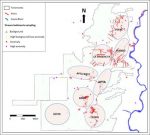(The opinions expressed here are those of the author, a columnist for Reuters.)
By Clyde Russell
LAUNCESTON, Australia, May 31 (Reuters) – A court ruling that Royal Dutch Shell must speed up plans to curb greenhouse gas emissions rocked the global oil and gas industry, but another decision in a case brought by eight school-aged teens and a nun may end up being more significant.
The order by a Dutch court that Shell must drastically deepen its planned emission reductions raised fears in the industry of similar legal actions against other oil and gas majors, and concern that companies will be held liable for meeting court imposed climate change targets.
The decision against Shell, coupled with shareholder rebukes against U.S. oil majors Exxon Mobil and Chevron, made it a bad week for an industry that is grappling with how to deal with the challenge of operating profitably and sustainably in what is likely to be a carbon-constrained future.
An Australian court added fuel to the fire on May 27, ruling that the country's environment minister has an obligation to children to consider the harm caused by climate change when deciding whether to approve a coal mine expansion.
The Federal Court of Australia made the ruling in a class action suit brought by eight teenagers, aged between 14 and 17, and an 86-year-old nun acting as their litigation guardian. In the suit, the teens argued that the expansion of Whitehaven Coal's Vickery mine in New South Wales state would contribute to climate change and endanger their future.
Australia is the world's largest exporter of coking coal used to make steel and second-biggest in thermal coal for power generation, and the industry – domestically and abroad – has become a political battleground.
The court ruling was only a partial victory, though, as the judge didn't grant an injunction to prevent Environment Minister Sussan Ley from approving the mine.
The ruling does mean the minister will have to consider her duty of care to future generations, with Justice Mordecai Bromberg saying the minister can foresee the possibility of the climate damage from the coal mine.
The judge said there is evidence of the "severe harm" climate change can cause future generations.
"It will largely be inflicted by the inaction of this generation of adults, in what might fairly be described as the greatest intergenerational injustice ever inflicted by one generation of humans upon the next," Bromberg said, according to a report in the Financial Times.
WIDER IMPACT
Australia's federal government said it will study the judgment, and it's likely the implications go well beyond a 10 million-tonnes-per-year coal mine.
The obvious end point of the case is that citizens will be able to sue the government for damages caused by climate change, using the argument that the government was well aware of the risks but still took actions that contributed to increasing carbon emissions.
If the government deems the risk of being sued by its own citizens to be high, it may have to concede that approving more coal will be challenging.
For its part, Whitehaven Coal welcomed the decision not to grant the injunction against its planned mine expansion, and will work to get a final approval from the federal government.
The company also made the curious statement that it foresees a continuing role for what it termed "high-quality coal" in contributing to "global CO2 emissions reduction efforts".
The only way burning coal from Whitehaven's mine could be deemed to be helping reduce emissions is if it were replacing even dirtier, lower-quality coal, or perhaps if the end user was capturing all the emissions and storing them.
There is no evidence to support either assertion and Whitehaven's stance is at odds with a recent paper from the International Energy Agency that called for an end to the funding and development of fossil fuel projects.
The one factor in common in the Dutch and Australian rulings is that for companies and governments the risks of legal actions and being held accountable on climate change-related issues are not only very real, but also increasing.
Environmental activists have finally realised that hitting companies and governments with potentially massive liabilities is a far more effective strategy than having protesters chain themselves to mining equipment or staging similar high-profile but ultimately low-impact demonstrations. (Editing by Tom Hogue)



 Follow us on Twitter
Follow us on Twitter Become our facebook fan
Become our facebook fan










Comments are closed.